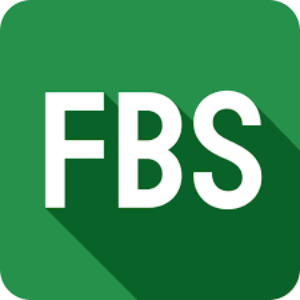
Choosing the best broker for day trading can significantly impact your success as a trader. I have explored various platforms to find those that offer the best tools, low fees, and supportive resources. The right broker will provide a combination of user-friendly trading platforms, competitive commission rates, and quality customer support.
Day trading is an exciting yet challenging approach to trading stocks and other securities. The choice of broker plays a crucial role in your ability to execute trades quickly and effectively. I will share insights on what to look for in a broker, such as trading tools, educational resources, and the overall trading experience.
By the end of this article, you’ll have a better understanding of what constitutes the best broker for day trading and how to make an informed choice based on your trading style and goals.
Key Takeaways
- Low commission fees can help maximize your profits.
- User-friendly trading platforms offer a better trading experience.
- Educational resources are vital for improving your trading skills.
What Is Day Trading?

Day trading involves buying and selling financial instruments within the same trading day. This type of trading is popular among traders looking to profit from short-term price movements. Traders can engage in day trading using stocks, options, futures, and forex, utilizing strategies and risk management to enhance their success.
Fundamentals of Day Trading
Day trading refers to the practice of executing trades within one day. Traders aim to capitalize on small price fluctuations. I often use day trading platforms to gain real-time market access. These online brokers provide tools that help me analyze stocks and execute trades quickly.
I can tap into leverage, which allows me to control larger positions with less capital. However, leverage can magnify losses just as it can magnify profits, making it crucial to manage risk appropriately. Day traders typically operate using a cash or margin account, with margin accounts requiring adherence to specific rules set by regulators like FINRA.
5 Best Brokers for Day Trading
1. Interactive Brokers
- Trading Platforms: Offers Trader Workstation (TWS), a highly customizable platform suitable for advanced traders.
- Commission Rates: Competitive rates with a tiered pricing structure based on trading volume.
- Market Access: Provides access to over 135 markets worldwide, allowing for trading in stocks, options, futures, forex, bonds, and funds.
- Tools: Real-time monitoring, risk management tools, and a range of order types for precise trading control.
2. TD Ameritrade (thinkorswim)
- Trading Software: thinkorswim provides a professional-grade trading platform with elite-level tools for analysis and trading.
- Commission Structure: Offers $0 commissions for US stock and ETF trades, with a competitive fee for options trades.
- Tools: Advanced charting, technical analysis tools, and a virtual trading simulator to test strategies without risk.
- Educational Resources: Extensive offering of webinars, courses, and live workshops to improve trading skills.
3. E*TRADE
- Trading Platforms: Provides two platforms, ETRADE Web for simpler trading and Power ETRADE for more advanced options and charting.
- Commission Fees: $0 commission on stock and ETF trades; reduced fees for high-volume options traders.
- Tools: Streaming market data, customizable watchlists, and a suite of options trading tools.
- Mobile Trading: Highly rated mobile apps that allow efficient trading and portfolio monitoring on the go.
4. Charles Schwab
- Trading Platforms: Schwab offers StreetSmart Edge, a feature-rich platform ideal for charting and complex trades.
- Research Tools: Extensive research offerings, including in-house and third-party analyst reports and market commentary.
- Customer Support: 24/7 access to trading specialists and customer service.
- Educational Resources: Provides a wide range of educational materials, from articles and videos to immersive workshops.
5. Fidelity
- Trade Execution: Known for its superior trade execution quality, which is critical for day trading where every penny per share counts.
- Commission Fees: $0 commissions on online U.S. stock and ETF trades.
- Tools: Active Trader Pro for real-time information, analytics, and advanced charting.
- Research and Education: Provides free access to top-notch research and learning tools that are beneficial for traders at all levels.
Common Day Trading Strategies
Several strategies can enhance a day trader’s chances of success. One popular strategy is scalping, which involves making numerous small profits on minor price changes throughout the day. This strategy requires quick decisions and precise execution.
Another common approach is momentum trading. This strategy relies on trending stocks with strong performance. I look for stocks that are moving significantly in one direction and join the trend.
Swing trading is also seen in day trading. It typically involves holding positions for a few days, but some traders exit within the day to maximize quick gains. Indicators such as moving averages and RSI are pivotal in deciding when to enter or exit trades.
Risk Management in Day Trading
Effective risk management is vital in day trading. Many traders, including myself, set a stop-loss order to limit potential losses. This order automatically closes my position if the price drops to a pre-set level.
I also keep a close watch on the trading volume. High volume indicates market activity and can signal potential price movements. Diversification helps as well, spreading funds across different stocks or contracts to reduce risks.
Furthermore, I avoid overtrading, as excessive trades can rack up costs in commission and taxes. Finally, I acknowledge that all traders face losses, and it’s essential to learn from mistakes to improve future performance.
Evaluating Brokers for Day Trading

Choosing the right broker for day trading requires careful consideration of various factors. I will outline key features to look for and compare some popular day trading platforms.
Key Features to Consider
When evaluating brokers, certain features stand out. Commissions and fees are crucial; I prefer brokers with low or no commissions like IG or Webull. Trading tools should also be effective. Look for platforms that offer robust charting tools and analysis features.
Another important aspect is the mobile app usability. A solid app allows me to trade on-the-go. Additionally, the type of account options matter. Some brokers, like Interactive Brokers, provide margin accounts for traders seeking higher leverage.
Customer support quality can make a difference during trading hours. A platform that offers multiple support channels is advantageous. Lastly, make sure the broker is regulated by authorities such as FINRA to ensure security and proper oversight.
Comparing Top Day Trading Platforms
Several platforms stand out in day trading. Interactive Brokers is known for its comprehensive trading tools and competitive pricing. It’s suitable for advanced traders seeking in-depth analysis.
TD Ameritrade, especially with its Thinkorswim platform, offers an excellent user experience and strong research support. It’s appropriate for both beginner and active traders.
Charles Schwab presents a user-friendly interface and has no commission fees for stocks and ETFs. This makes it attractive for new traders.
E*TRADE combines a great mobile app with effective educational resources. It caters well to users who are starting with day trading.
Finally, eToro offers unique features like social trading, allowing me to follow successful traders for insights and strategies. Each platform has its strengths, making it essential to choose based on my trading style and goals.
Trading Tools and Platforms

In day trading, having the right tools and platforms is essential. These tools aid in executing trades effectively and making informed decisions. I will cover key features such as advanced charting, real-time data, and user-friendly interfaces.
Advanced Charting and Analysis
Advanced charting tools are vital for day traders. They provide visual insights into market trends and price movements. I look for platforms that offer various chart types, like line, bar, and candlestick. These charts help me analyze patterns and make predictions.
Features to consider:
- Technical Indicators: Look for platforms that include moving averages, RSI, and MACD.
- Customization: The ability to customize charts for personal preferences is crucial.
- Integration: Good trading platforms will allow integration with third-party research tools for deeper analysis.
Interactive Brokers and TD Ameritrade’s Thinkorswim are examples of platforms that excel in offering comprehensive charting tools for traders like us. They make it easier to spot trends and make timely decisions for trades.
Real-Time Data and Executions
Real-time data is critical in day trading. This data allows me to see live price movements and trading volume, helping me act quickly. Delays in information can lead to losses, so it’s important to choose a platform that provides up-to-the-second updates.
Consider these aspects:
- Execution Speed: Fast execution times are essential for day trades, where every second counts.
- User-Friendly Interface: I prefer platforms with intuitive designs that simplify navigation and data access.
- Alerts and Notifications: Having alerts for price movements or market news helps me stay informed without constantly watching the screens.
Platforms like Webull and E-Trade stand out for their real-time data capabilities, allowing traders to react swiftly and effectively to market changes.
Account Features and Brokerage Fees

When choosing the best broker for day trading, it’s crucial to understand both the features of the brokerage account and the associated fees. These elements can significantly impact your profitability and overall trading experience.
Understanding Brokerage Commissions
Brokerage commissions refer to the fees charged for executing trades. Many platforms now offer commission-free trading, allowing me to trade stocks without extra costs. This is especially important for active traders who buy and sell frequently.
Each broker may have different commission structures, including per-contract fees for options trading, which can influence my choice. For instance, platforms like TD Ameritrade and Charles Schwab provide competitive pricing, but it’s essential to consider the minimum deposit required to open an account. Low commissions and transparency in fees make trading more accessible and can result in higher returns over time.
Importance of Low Fees and Commissions
Low fees are vital for frequent traders. Even small differences in commission rates can add up, significantly affecting my total trading costs. For active traders, high costs can magnify losses when trading frequently.
In addition to trading commissions, it’s important to consider other fees, such as those associated with withdrawing funds or keeping a balance in the account. Platforms like Robinhood offer commission-free trading and no minimum deposits, making them appealing to many. However, it’s also essential to evaluate features like access to fractional shares and user interface. A good trading platform should provide reliable tools with low brokerage fees, enabling me to make informed trades efficiently.
Trading Education and Resources

To succeed in day trading, understanding the resources available is crucial. These resources include educational materials and market analysis tools that can significantly enhance a trader’s skills and decision-making process.
Educational Materials for Traders
Educational materials are essential for both new and experienced traders. Many brokers, such as TD Ameritrade and Interactive Brokers, provide comprehensive training programs. These include webinars, eBooks, and tutorials that cover various trading strategies and market principles.
Additionally, platforms like Thinkorswim offer extensive educational resources tailored for active traders. They focus on topics like technical analysis and risk management. Many resources are also available through YouTube, where expert traders share insights and experiences.
Reading books on trading psychology and strategies can also build a solid foundation. Participating in forums allows traders to exchange ideas and learn from real-world experiences. With a blend of these resources, traders can enhance their user experience and knowledge of the markets.
Market Analysis Tools
Market analysis tools are vital for informed trading decisions. They help traders analyze trends, assess risks, and make predictions. Most trading platforms, such as E-Trade and Charles Schwab, provide advanced charting options and analytical tools.
Active Trader Pro, for instance, offers real-time data and customizable charts that help identify potential price movements. This can be particularly useful for day traders looking to capitalize on short-term opportunities.
Additionally, news feeds and economic calendars can keep traders updated on market events. They are essential when trading futures or forex, where timing can impact outcomes. Using these tools effectively can give traders an edge in the competitive world of day trading.
Customer Service and Support
When choosing the best broker for day trading, customer service and support play a crucial role. It’s important to have reliable assistance available whenever I need help, especially during active trading hours. A broker’s support can greatly affect my trading experience.
Availability and Responsiveness
Availability is key for any day trader. I need access to customer support when I encounter issues or have questions. Many brokers, such as TD Ameritrade and Charles Schwab, offer multiple communication channels, including phone, chat, and email. Some brokers even provide 24/7 support. Quick response times can significantly impact my ability to act fast in the market.
In addition, brokers with mobile apps like Webull and Robinhood allow me to get help on the go. I can easily reach out for support even while actively trading. This flexibility is a huge advantage during high-pressure trading moments.
Quality of Service
The quality of service I receive can vary between brokers. A knowledgeable support team can help me resolve issues efficiently. Many brokers provide access to educational resources, which can be beneficial for both beginner and advanced traders.
For instance, platforms like Thinkorswim offer extensive tutorial resources alongside their customer service. This dual approach helps enhance my overall trading experience. I also appreciate brokers that offer dedicated support for specific trading products, like options or futures, addressing my unique needs as a day trader.
By focusing on both availability and the quality of service, I can ensure I choose a broker that supports my trading goals effectively.
Regulation and Security
Understanding regulation and security is crucial for anyone involved in day trading. Regulatory bodies ensure that brokers and trading platforms operate fairly and transparently, while secure trading environments protect investors’ assets.
Understanding Regulatory Bodies
In the United States, the main regulatory bodies are the Securities and Exchange Commission (SEC) and the Financial Industry Regulatory Authority (FINRA). The SEC focuses on maintaining fair markets and protecting investors. It enforces laws against market manipulation and fraud. On the other hand, FINRA regulates brokerage firms and their brokers. It sets rules to ensure they act in the best interest of their clients. Online brokers must comply with these regulations to offer their services. This means they undergo regular audits and have to maintain certain financial standards. For day traders, choosing a broker that adheres to these regulations adds a layer of trust and security to their trading experience. You can learn more about these regulations here.
Importance of Secure Trading Environments
A secure trading environment protects personal and financial information. Brokers must implement safety measures such as encryption and two-factor authentication to safeguard accounts. I prefer brokers that use Securities Investor Protection Corporation (SIPC) insurance, which protects customers if the broker fails. This coverage adds another layer of security. Day traders should also be cautious about using public Wi-Fi for trading, as it can expose sensitive information. Regularly updating passwords and using secure connections also helps protect trading accounts. I find that these steps assist in maintaining peace of mind while navigating the trading markets. Protecting my investments is just as important as choosing the right trading strategies.
Mobile Trading Experience
Mobile trading has changed how active traders operate. With easy access to trades and high-speed execution, day traders can respond quickly to market changes. The design and features of mobile apps also enhance the user experience, making trading more efficient. Here’s what I find essential in this area.
Benefits of Mobile Apps for Day Trading
Mobile apps offer numerous benefits for day traders. First, they provide fast order execution, which is crucial in a fast-paced market. When every second counts, having the ability to place trades quickly can lead to better outcomes.
Portability is another significant advantage. With trading platforms like TD Ameritrade’s Thinkorswim or Robinhood, I can trade anytime and anywhere. This flexibility allows me to track my investments without being tied to a desktop.
Mobile apps often come with real-time data and alerts. For instance, I receive notifications about important market changes, allowing me to stay informed. Many apps also offer features like advanced charting tools, which are essential for developing effective trading strategies. Overall, mobile trading makes the day trading experience smoother and more convenient.
Features of Top Mobile Trading Applications
The best mobile trading applications have several key features that enhance the trading experience. A user-friendly interface is crucial. It allows traders like me to navigate quickly and execute trades without confusion. Apps from brokers like Schwab and E-Trade excel in this area.
Customizable dashboards are another important aspect. I enjoy being able to tailor what information I see, such as specific stocks or trading tools. Features like this make it easier to monitor my investment portfolio actively.
Lastly, many top mobile apps offer integrated research tools. These include access to market reports and analytics, which help inform my trading decisions. For example, Webull provides third-party research that complements my strategies. Collectively, these features contribute to a more effective and enjoyable trading experience.
Conclusion
The article emphasizes the significance of choosing the right broker for day trading by considering factors such as low commission fees, robust trading platforms, and comprehensive educational resources. It provides insights into the various strategies that successful day traders employ and reviews five top brokers to help traders make informed decisions based on their specific trading styles and needs.
Frequently Asked Questions
In this section, I will address common questions regarding brokers and platforms that cater to day trading. The answers provided will help clarify what to look for in a broker and how to optimize your trading experience.
What characteristics should a broker have to be suited for day trading?
Good customer support is also essential. Traders sometimes encounter issues that need immediate attention. A responsive support team can help address concerns effectively.
Which online trading platform is most popular with day traders?
What characteristics should a broker have to be suited for day trading?
Good customer support is also essential. Traders sometimes encounter issues that need immediate attention. A responsive support team can help address concerns effectively.









